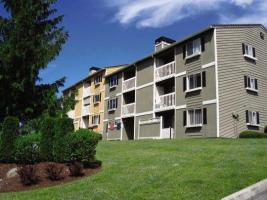 vs.
vs.
This morning I noticed a discussion topic on Bigger Pockets that caught my attention. An investor, Mathew Thompson of Evans, Georgia, @Matthew Thompson posed the question: Multifamily Properties – Too Good to be True?
To see the full discussion, check out the link above. Below you will see my response, which address some of Mathew’s specific questions. I hope you find this useful:
First, you are correct that multifamily on average has a higher cash flow relative to single family (if purchased correctly, there are always exceptions). I think a lot of folks buy single family with so-so cash flow with the hope that the property will appreciate faster than multifamily, which is sometimes the case, and make their profits at the end with the sale. Personally, I favor multifamily because you can get better cash flow and you can actually influence the price of the asset (force appreciate) much easier than you can with single family, which is far more reliant on the neighborhood and comps vs. income.
Second, you are talking about the difference of leverage: all cash, vs. most cash vs. little to no cash. You are correct that the less money you put down, the higher return you have, which actually goes to infinity if you put no money down. That being said, those returns do the same in reverse if the property is vacant, or goes down in value. This is why so many folks lost properties in 2007-8. They had very little money down, were over-leveraged on an under-performing asset, which makes a bad situation really bad. The simple rule is use conservative numbers, which your 50% expense rule is a good start, and leave a cushion for positive cash flow. For example, if after operating expenses of 50% and debt service, you only have $100/month cash flow, all it takes is one decent size repair to wipe out your cash flow for the entire year, or potentially 5 years if it’s and HVAC or Roof. So make sure to leave a cushion.
A really helpful tool to choose your optimal amount of leverage is a sensitivity analysis, which will weigh how much leverage you use (0%, 10%… 90%) relative to adjusting 1 other item at a time, such as appreciation or rent growth rate etc… this will show you in each circumstance how your ROI changes based on how much money you put down relative to different performance such as appreciation or vacancy or rent growth rate. Just remember, leverage exacerbates the outcome both good and bad.
Lastly, with your $100,000, I would recommend trying to buy a $500,000 multifamily asset. If you buy a mobile home park or Class C multifamily property, you can probably buy around $15,000 – $20,000/unit, so say 25 units +/-. If you put down $100,000 (20%), then you are financing around $400,000, which works out to around $3,200/month ($38,400/yr assuming 180 month term at 5%) debt service. If the property is a 10% cap rate, you should expect $50,000 before debt service, so your cash flow after debt service would be $11,600. Takeaways here: if you paid all cash, your return would be 10% (AKA Cap Rate), however, you are leveraging 80%, and your cash on cash return is 11.6%. Not a home run, but not bad.
Here is where this gets fun. Let’s assume you found a good deal that rents are below market, so after 1 month you increase rents by $40/unit. Now, assuming you purchased 25 units, you can increase your monthly cash flow by $40 x 25 units = $1,000/month or $12,000/year, so now your cash flow is $23,600, thus, a 23.6% return in year 1!
Not only that, you just increased the NOI of the property from $50,000 + $12,000 = $62,000, so at a 10% cap rate, you just increased the value of this property by (10 x $12,000 = $120,000) up to $620,000, in one month, by simply increasing rents $40. This is a highly simplified breakdown of everything, but the principles are the same whether it’s 5 units or 200 units, but the more units you can get at once the better in my opinion, which is why I would suggest getting a property like the one I mention above. Also, the good news is banks will like you borrowing on this property more than on single family because you are effectively buying a business that throws off money (Banks will be looking at the Debt Coverage Ratio among other things) whereas single family is a little more challenging for lenders at this scale.
Lastly, you can still get these returns with single family homes if you come across the right deals, it just usually takes more physical and capital expenditures to improve their value, which takes a lot more time and energy, whereas with multifamily, you can hopefully exploit mis-management vs physical distress.
Good luck to you. Let me know if you need help as you go down this road.
Cheers,
Roby
Top of Form
Very informative piece!
On Wed, Mar 9, 2016 at 9:29 AM, Roby Seeds Blog wrote:
> trubild posted: ” vs. This morning I noticed a discussion topic on > Bigger Pockets that caught my attention. An investor, Mathew Thompson of > Evans, Georgia, @Matthew Thompson posed the question: Multifamily > Properties – Too Good to be True? To see the full discussio” >
LikeLike